 W
WWithdrawal from the European Union is the legal and political process whereby an EU member state ceases to be a member of the Union. Article 50 of the Treaty on European Union (TEU) states that "Any Member State may decide to withdraw from the Union in accordance with its own constitutional requirements".
 W
WAn independence referendum was held in French Algeria on 1 July 1962. It followed French approval of the Évian Accords in an April referendum. Voters were asked whether Algeria should become an independent state, co-operating with France; 99.72% voted in favour with a voter turnout of 91.88%.
 W
WA referendum to decide whether Greece should accept the bailout conditions in the country's government-debt crisis proposed jointly by the European Commission (EC), the International Monetary Fund (IMF) and the European Central Bank (ECB) on 25 June 2015 took place on 5 July 2015. The referendum was announced by Prime Minister Alexis Tsipras in the early morning of 27 June 2015 and ratified the following day by the Parliament and the President. It was the first referendum to be held since the republic referendum of 1974 and the only one in modern Greek history not to concern the form of government.
 W
WBrexit is the withdrawal of the United Kingdom (UK) from the European Union (EU) and the European Atomic Energy Community on 31 January 2020. The UK is to date the first and only country to formally leave the EU after 47 years of membership and cautious integration within the bloc after it first joined its predecessor, the European Communities (EC), on 1 January 1973. It is also thought to be the first country to voluntarily withdraw from an economic and monetary union of countries. Currently it continues to participate in the European Union Customs Union and European Single Market during a transition period that will end on 31 December 2020.
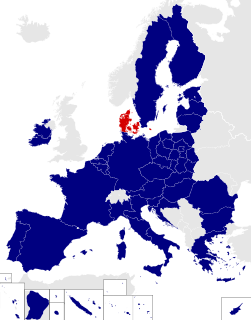 W
WDanish withdrawal from the European Union refers to the hypothesis that Denmark might leave the European Union (EU). Withdrawal is advocated by Danish Eurosceptics and opposed by Danish Pro-Europeanists: each of these groups spans the left–right political spectrum. The immediate objective of the Danish Eurosceptics is to have a referendum on their proposal. The proposal is supported by just one of the political parties represented in the Danish Parliament, which has less than 9% of the total seats.
 W
WDutch withdrawal from the European Union refers to the hypothesis that the Netherlands might withdraw from the European Union. As of 2020, with opinion polls showing a 3:1 majority against the idea, no such withdrawal is in prospect.
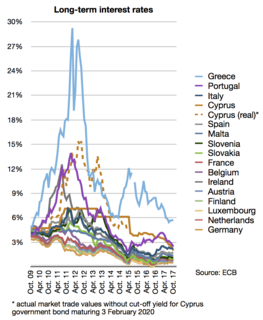 W
WThe European debt crisis is a multi-year debt crisis that has been taking place in the European Union since the end of 2009. Several eurozone member states were unable to repay or refinance their government debt or to bail out over-indebted banks under their national supervision without the assistance of third parties like other eurozone countries, the European Central Bank (ECB), or the International Monetary Fund (IMF).
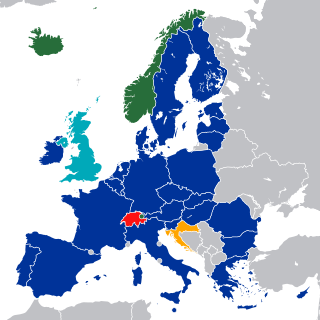 W
WThe European Economic Area (EEA) was established via the Agreement on the European Economic Area, an international agreement which enables the extension of the European Union's single market to member states of the European Free Trade Association. The EEA links the EU member states and three EFTA states into an internal market governed by the same basic rules. The United Kingdom benefits from this relationship during the transition/implementation period planned by the treaties. These rules aim to enable free movement of persons, goods, services, and capital within the European Single Market, including the freedom to choose residence in any country within this area. The EEA was established on 1 January 1994 upon entry into force of the EEA Agreement. The contracting parties are the EU, its member states, and Iceland, Liechtenstein, Norway, and the United Kingdom.
 W
WEuroscepticism, also known as EU-scepticism, means criticism of the European Union (EU) and European integration. It ranges from those who oppose some EU institutions and policies and seek reform, to those who oppose EU membership outright and see the EU as unreformable. The opposite of Euroscepticism is known as pro-Europeanism, or European Unionism.
 W
WEuroscepticism is a minority view in Ireland. Opinion polls between 2016 and 2019 indicate between 70% and 90% support for continued membership of the European Union (EU).
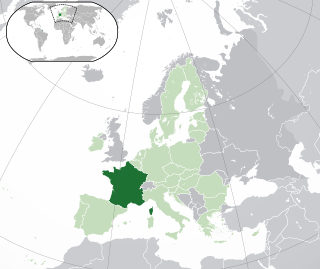 W
WFrexit is the hypothetical French withdrawal from the European Union (EU). The term is similar to Brexit, which denotes the UK leaving the EU. The term was mostly used during the campaign leading to the French presidential election of 2017.
 W
WIn 2016, the impact of Brexit on the European Union (EU) was expected to result in social and economic changes to the Union, but also longer term political and institutional shifts. The extent of these effects remain somewhat speculative until the precise terms of the United Kingdom's post-Brexit relationship with the EU becomes clear. With an end to UK participation in the EU's policies on freedom of movement and the European Union Customs Union, as well as sharing criminal intelligence and other matters, there is a clear impact with consequences for both institutions.
 W
WParliamentary votes on Brexit, sometimes referred to as "meaningful votes", are the parliamentary votes under the terms of Section 13 of the United Kingdom's European Union (Withdrawal) Act 2018, which requires the government of the United Kingdom to bring forward an amendable parliamentary motion at the end of the Article 50 negotiations between the government and the European Union in order to ratify the Brexit withdrawal agreement.
 W
WThe United Kingdom European Communities membership referendum was a public vote that took place on 5 June 1975, on whether the United Kingdom should remain a member of the European Communities which was principally the European Economic Community as it was known at the time. At the time the UK had already been a member of the EC for two and a half years since joining back on 1 January 1973 and was the first ever national referendum of its kind to be held in the country.
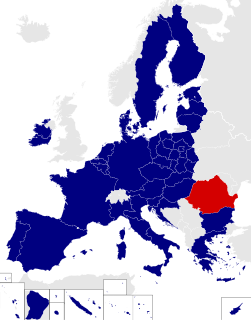 W
WThe Romanian withdrawal from the European Union or Roexit is the hypothetical Romanian withdrawal from the European Union (EU). Romania, which joined the EU in 2007, is usually regarded as different from its other Eastern European neigbours members of the organization, where illiberal and populist politics dominate.
 W
WArticle 7 of the Treaty on European Union is a procedure in the treaties of the European Union (EU) to suspend certain rights from a member state. While rights can be suspended, there is no mechanism to expel a member.
 W
WWithdrawal from the Eurozone denotes the process whereby a Eurozone member-state, whether voluntarily or forcibly, stops using the euro as its national currency and leaves the Eurozone. As of August 2020, no country has withdrawn from the Eurozone.
 W
WThe withdrawal of Greenland from the European Communities took place in 1985. This followed a referendum in 1982 in which 53% voted to leave.